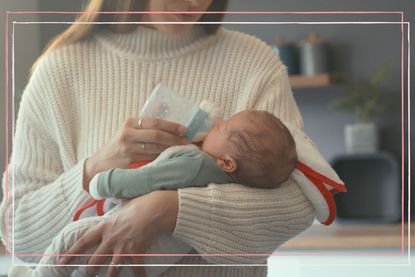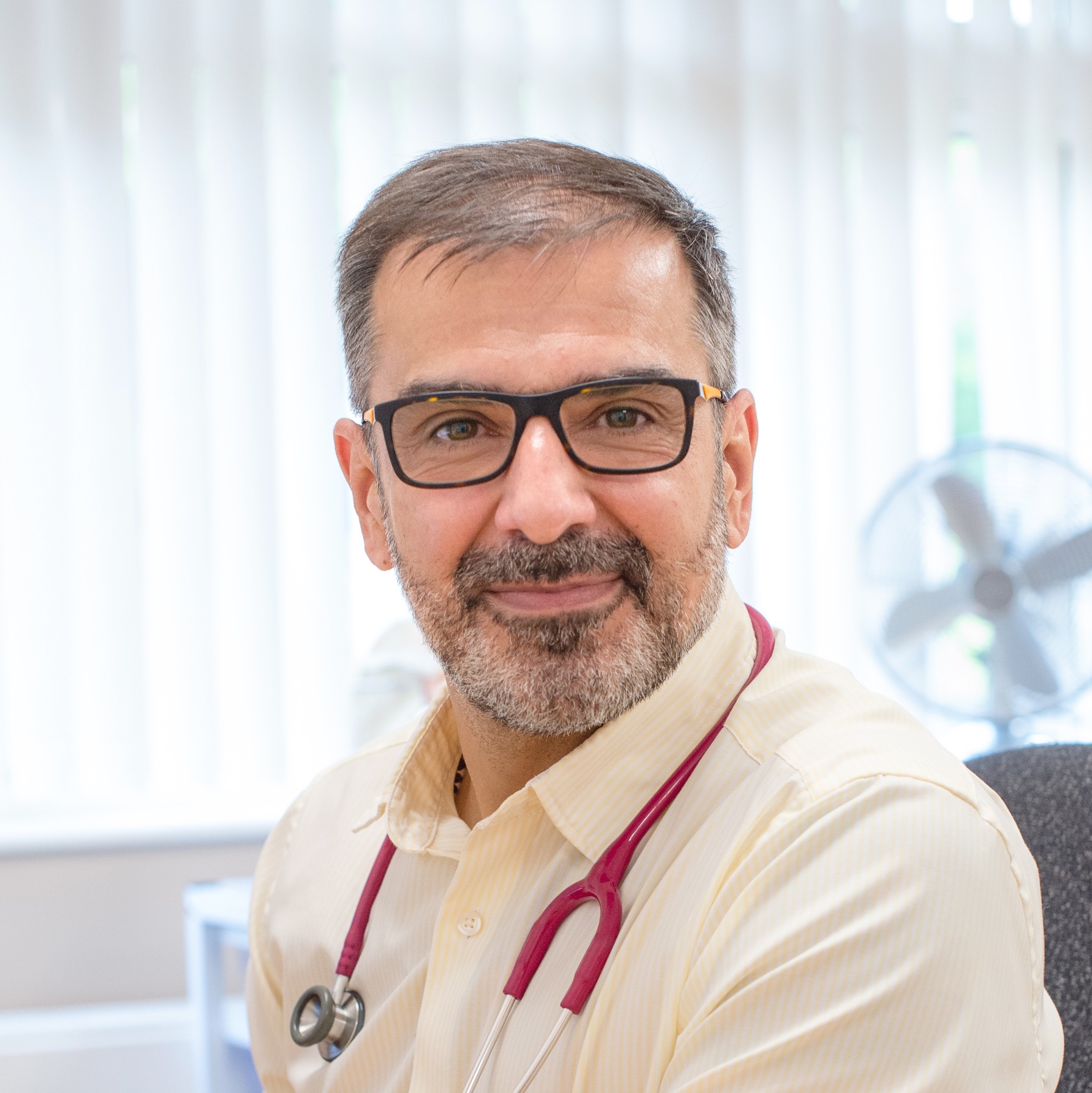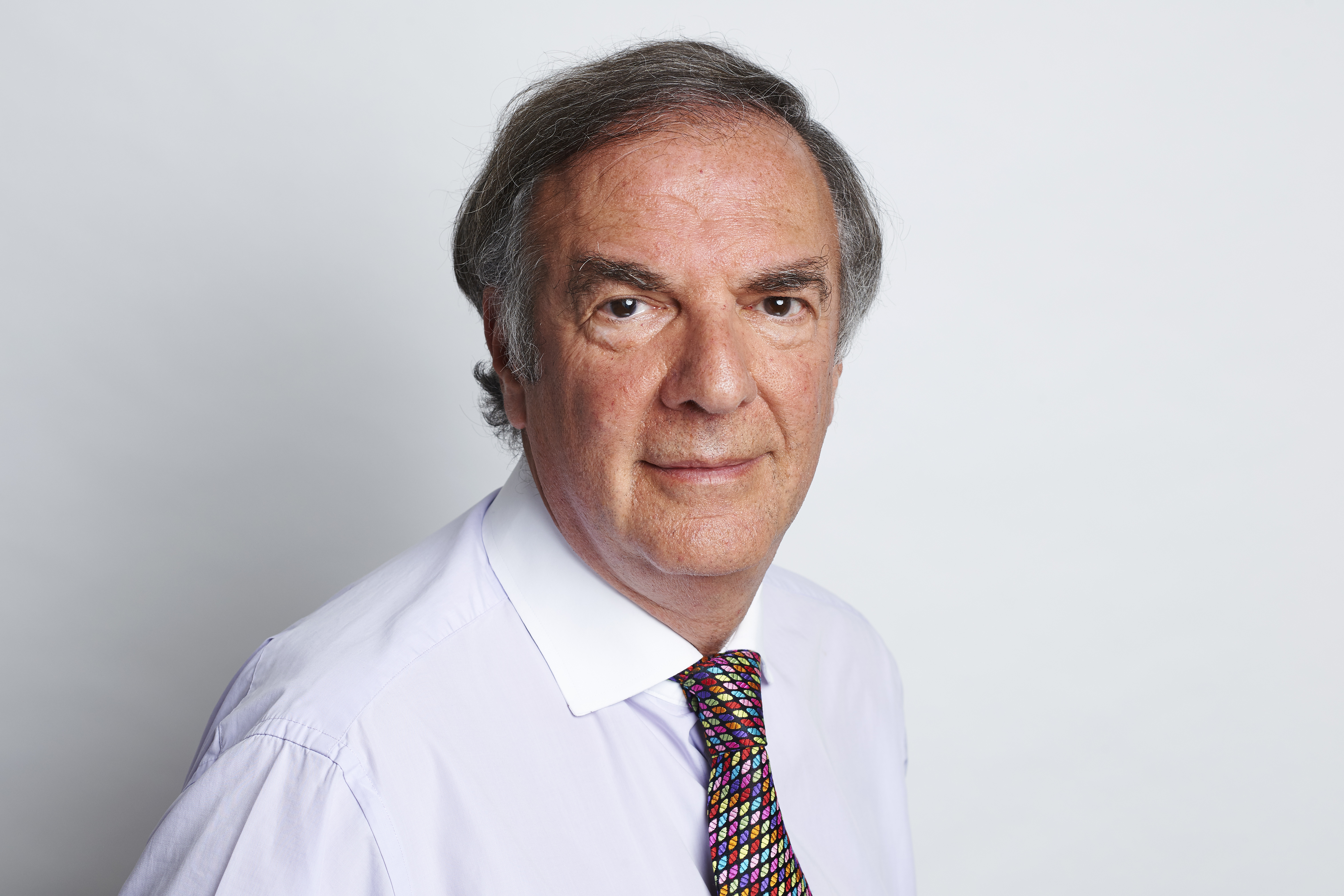How to spot the signs of dehydration in newborns and babies, according to doctors
Doctors share how to spot the signs of dehydration in newborns and babies so that you can get them seen by a doctor as soon as possible.


Dehydration in newborns and babies can be serious, so it's important to know what the signs are and keep your child hydrated at all times. See your GP immediately if you think your child is dehydrated.
While good hydration is important for all of us and the benefits of water are universally acknowledged, it is particularly important for babies to be hydrated at all times – especially newborns and children under one. "Unlike toddlers and older children, babies rely on their nutrition via a mostly liquid diet," explains Dr José Costa, a senior consultant paediatrician. "Therefore dehydration - depending on the cause - can also result in a nutritional deficit, which can impact their growth and general development."
As well as Dr Costa, we also spoke to GP Dr Laurence Gerlis, and the doctors shared their advice with us on how to spot the signs of dehydration in newborns and babies so that you can get them seen by a doctor as soon as possible.
Young children and babies are at greater risk of becoming dehydrated than adults. It is really important to be alert to worrying signs of dehydration in your child, such as fewer wet nappies and if they have a soft spot on their head that sinks inwards. Always speak to a doctor if you have concerns or seek urgent medical help if needed.
What are the signs of dehydration in newborns and babies?
Signs of dehydration in newborns and babies can range from fewer wet nappies than usual to your baby becoming lethargic or breathing faster than normal. The NHS lists the following five key signs of dehydration in a baby:
- a sunken soft spot (fontanelle) on top of their head
- sunken eyes
- few or no tears when they cry
- not having many wet nappies
- being drowsy or irritable
"For babies under 18 months, the anterior fontanelle - the soft spot at the front of the head - may become sunken or depressed," explains Dr Costa. "You should also look out for lethargy, sunken eyes, a lack of dribbling or lack of tears while crying, as well as an increasing heart rates and breathing." A sunken fontanelle, drowsiness, lack of wet nappies, fast heart rate and few or no tears when crying are all signs of serious dehydration in children that need urgent treatment, so if you spot these signs you should see your doctor urgently or call NHS 111.
"There may be a rise in dry nappies, and your baby may experience poor circulation with cold hands," Dr Gerlis explains. "If there are dry nappies for 24 hours, then seek urgent medical attention."
GoodtoKnow Newsletter
Parenting advice, hot topics, best buys and family finance tips delivered straight to your inbox.
The signs of dehydration in older babies is very similar to those you would look for in newborns. "There is not much difference in presentation in an older baby - apart from a decrease in activity and not wanting to do the things they normally enjoy as they become more mobile, active and engaged," explains Dr Costa.
You also want to be alert to any complications. "This could include decreased consciousness, poor capillary filling in the nails and a fever," explains Dr Gerlis. Seek urgent medical attention if you notice any of these signs.
What might cause dehydration in babies?
"Dehydration in a well-fed baby is not common - unless they develop significant diarrhoea or vomiting, or there are underlying conditions leading to excessive fluid loss," explains Dr Costa.
However, there are some physiological reasons why babies are particularly vulnerable, mainly, "babies have a high surface area of skin to body volume so can lose fluid through the skin very easily," notes Dr Gerlis.
"The main reasons for dehydration in babies are diarrhoea or vomiting, most commonly due to a virus,” explains Dr Costa. “If your baby is unwell - with or without a fever and symptoms of diarrhoea or vomiting - it’s important to see your doctor urgently to rule out a bacterial infection." This is because it could be pointing towards the less common but life-threatening conditions sepsis and meningitis.
"Ongoing projectile post-feed vomits can also be caused by a condition called pyloric stenosis, which requires urgent treatment," continues Dr Costa. "If in doubt, always have your baby checked by a doctor when they are unwell, in order to rule this and any other serious conditions out."
Dehydration may also be caused by a change in feeding habits. "Refusing milk can likewise cause babies to become dehydrated, which becomes more pronounced when the weather is warmer," notes Dr Costa. "They also sometimes have a challenge latching onto the breast and can struggle to suck well from either breast or bottle. It’s important for mothers to keep an eye on milk supply if babies are being solely breastfed."
If you think your baby is dehydrated it is best to call your GP and make an urgent appointment.
How to keep your baby hydrated and reduce the risk of dehydration
It's important to keep your child hydrated and ensure that their fluid levels are maintained.
The NHS advises that you should, "carry on breastfeeding your baby or using formula – try to give small amounts more often than usual" and "give your baby small sips of extra water if they’re on formula or solid foods."
"As a rule of thumb, always ensure your child drinks the recommended volume for their age," explains Dr Costa. "As a guideline, babies need 150ml per kg per day. When they start having solids, we multiply their weight by ten to calculate their recommended fluid intake."
"When the weather is warmer, you can increase this volume slightly by about five or ten per cent, to compensate for extra losses. This volume also needs to be higher if the child is having frequent diarrhoea. Although it is hard to determine exactly how much they are losing, offer fluids in small volumes often and monitor for signs of dehydration."
However, don’t overdo it. "Remember that a baby’s stomach is small," points out Dr Costa. "So, trying to give larger volumes will likely lead to further vomiting, worsening the problem."
"Try to offer sips of water - not too much to induce vomiting, but a sip every five minutes for a while," suggests Dr Gerlis.
Dr Gerlis advises: "Just be aware that fluid intake is more important than eating. While parents often worry about babies not eating after weaning, hydration is even more crucial."
"You can increase the frequency of their feeds - whether breastfeeding or formula - if your baby is otherwise active and well," says Dr Costa. "If you are concerned that they are unwell, always take them to the doctor to rule out a bacterial infection or any other serious illness."
When to seek urgent medical attention
There are certain signs that your baby is experiencing a worrying level of dehydration. Dr Gerlis explains, "Continued vomiting and diarrhoea with very dry nappies should lead you to go to hospital, especially if your baby is unable to tolerate sips of water."
Dr Costa also advises that if your baby is not, "keeping liquids down, even when they are managing to drink little and often, or the volume of diarrhoea is well over the oral fluid intake, it’s important for your child to go to A&E, in case they require intravenous fluids."
Additionally, Dr Costa warns: "Look out for whether your baby is becoming lethargic, a high temperature of 38C or above and projectile vomiting. These are all symptoms that should be urgently reviewed in A&E."
"If you notice a non-blanching rash - that’s one that does not fade when pressed with a glass tumbler - you should act immediately as this could be a sign of a serious bacterial infection like meningitis or sepsis."
As a parent, you know your child best, and if you are ever concerned about your child you should call your GP straight away. If you are worried about your baby, a rash that has appeared, or you notice a change in their behaviour - such as not feeding well, being very sleepy, or very irritable - contact your GP or midwife immediately or seek urgent medical attention if necessary.
Disclaimer
The information on GoodTo.com does not constitute medical or other health advice or diagnosis and should not be used as such. Although GoodtoKnow consults a range of medical experts to create and fact-check content, this information is for general purposes only and does not take the place of medical advice. Always seek the guidance of a qualified health professional or seek urgent medical attention if needed.
Our experts

Dr José Costa is a senior consultant paediatrician, specialising in research and medical guidance on eczema, as well as childhood food allergies, hayfever and asthma. With over 16 years of experience in paediatrics and 12 years in paediatric allergy, he has worked in both the NHS and the private sector, as part of his own specialist Children’s Allergy Clinic.

Dr Laurence Gerlis is a GP, who has practiced privately for over 25 years in the Harley Street area as well as in the NHS. He studied at the University of Cambridge before going on to work at the Royal London Hospital. He is the founder and CEO of SameDayDoctor - a same-day private GP service - with four clinics in London and Manchester.

Lauren is a freelance writer and editor, with more than eight years of experience working in digital and print journalism. She has penned news and features for titles including Women's Health, Daily Telegraph, Cosmopolitan, The Times, Stylist, The Guardian, Woman & Home, Dazed, The Sun's Fabulous, Yahoo UK and Grazia.
Lauren specialises in covering health and wellness topics—ranging from nutrition and fitness, to health conditions and mental wellbeing. She also runs a weekly newsletter called Well, Actually..., which has been named a Substack Featured Publication.
-
 Worried about your teen 'being smelly'? They can't help it, according to scientists, and help is on its way to ease the problem
Worried about your teen 'being smelly'? They can't help it, according to scientists, and help is on its way to ease the problemWe know that puberty can cause all sorts of smells to emanate from teens - now scientists have revealed exactly what you're smelling, and how evolution contributed.
By Lucy Wigley Published
-
 Parenting coach shares 4 'powerful' reframes to try next time it feels like your kid is pushing all your buttons (and #4 is a game changer)
Parenting coach shares 4 'powerful' reframes to try next time it feels like your kid is pushing all your buttons (and #4 is a game changer)A parenting coach has shared four ways parents can reframe their thoughts when their kid has big emotions. Giving them a try could offer big results in little time.
By Lucy Wigley Published